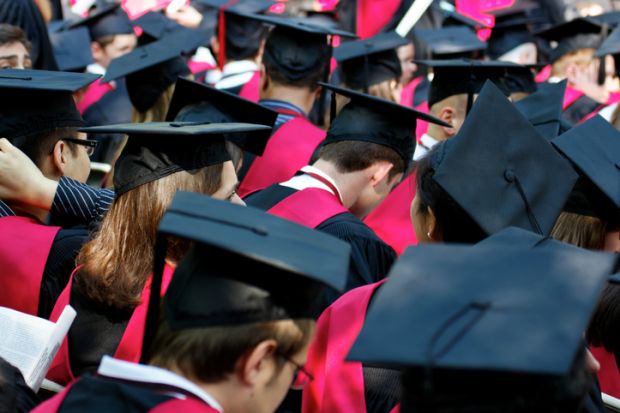As US higher education awaits a Supreme Court decision on its affirmative action policies, it is getting hit with a stark visual reminder that it could be doing a lot more either way to help the nation’s disadvantaged students.
A new documentary film, Exclusion U, is putting an emotional face to the idea that institutions such as Harvard University should use their world-leading endowments to admit many more students.
A central message, said Anthony Jack, an assistant professor of education at Harvard who appears in the film and helped shape its arguments, is that people should look at the expected ban on affirmative action and at the 2019 college admissions scandal as closely related elements of an intertwined story.
That is because both sets of events show the ways in which US higher education is not really trying as hard as it can to create equal access to its upper ranks, and instead too often works to solidify social divisions, Professor Jack claimed.
“The strength of the film is putting two things that people don’t want to talk about in conversation with each other,” he said.
In the affirmative action cases, Harvard and the University of North Carolina at Chapel Hill have been fighting for the right to keep using some measure of racial consideration in their admissions decisions. While a new politically conservative super-majority on the Supreme Court is expected to reverse the court’s past endorsement of such practices, many experts have questioned whether US higher education could improve its student body diversity regardless of the court’s position, through means such as ending preferences for athletes and children of alumni.
In the admissions scandal, federal prosecutors succeeded in convicting dozens of wealthy parents for paying bribes to help their children gain entry to selective and prestigious institutions, but openly admitted – and demonstrated during courtroom trials – that universities allowed other legal pathways for above-board donations to achieve the same basic outcome.
The new film highlights such inequities, tallying some of the many ways in which students who have the talent and commitment to succeed at the top ranks of US higher education are not given the chance, or face economic and personal humiliations in the relatively rare cases where they are allowed.
The film emphasises the idea that Harvard and the seven other Ivy League universities have a total undergraduate enrolment of about 70,000 students – about one-third of 1 per cent of the nationwide total – yet hold multibillion-dollar endowments fuelled by tax-exempt legal statuses that could be deployed to serve vastly greater numbers of eager applicants.
Exclusion U, according to its promotional materials, “challenges the notion that these are ‘private schools’ as they receive subsidies at a higher rate than state schools that educate needier students”.
The film’s director, Ginger Gentile, said that she had attended an Ivy League institution, Columbia University, “and I loved the education that I got there”.
“At the same time, I saw that these schools always cry poverty – they don’t have funds for certain things – so we’re just asking the basic most logical question: Why not educate many more people?”
Professor Jack said he expected the film’s greatest value would be more about the awareness it raised than the specific solutions it suggested. “Harvard and Yale – all the Ivies – could double or even triple their admission,” he said, “and it would still be a drop in the bucket in the number of students who attend Ivies as compared with the sheer number of students who go to higher education today, period.”
A Harvard spokesman said the university had no comment on the film but noted the university’s past statements defending itself on topics that Exclusion U raised, including student diversity, financial aid and payments that universities did or did not voluntarily make to their local communities as a partial replacement for taxes.
Register to continue
Why register?
- Registration is free and only takes a moment
- Once registered, you can read 3 articles a month
- Sign up for our newsletter
Subscribe
Or subscribe for unlimited access to:
- Unlimited access to news, views, insights & reviews
- Digital editions
- Digital access to THE’s university and college rankings analysis
Already registered or a current subscriber? Login








